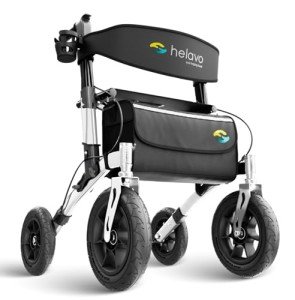A Comprehensive Guide to Medical Walkers: Enhancing Mobility and Independence
In the world of health care, mobility plays a crucial role in rehabilitation and overall wellness, particularly for seniors and those recuperating from injuries. Among the myriad of mobility help available today, medical walkers stick out as versatile tools that help with motion and improve independence. This post will look into the types, benefits, considerations, and FAQs regarding medical walkers.
What is a Medical Walker?
A medical walker, often referred to as a walking frame, is a helpful device created to help individuals with mobility difficulties stroll with greater stability and ease. Modern Walker supply a wider base of support compared to walking canes and crutches, making them ideal for those with balance issues or minimal strength.
Types of Medical Walkers
| Type | Description | Features |
|---|---|---|
| Standard Walker | A standard four-legged frame without wheels, used mostly for stability. | Lightweight, durable, adjustable height, appropriate for indoor and outdoor usage. |
| Wheeled Walker (Rollator) | A walker with wheels on the front legs, permitting easier motion. | Geared up with hand brakes, a seat for resting, and storage choices. |
| Hemi Walker | A walker created for people who can use one arm and need support. | Lightweight and compact, features a curved manage for easier gripping. |
| Bariatric Walker | Created for larger individuals, using increased weight capability and stability. | Enhanced toughness, wider frame, and helpful features for heavier users. |
| Knee Walker | An unique choice for those with leg injuries, enabling them to rest the knee. | A platform to support the injured leg, guiding capabilities, and brakes. |
Advantages of Using a Medical Walker
- Improved Stability: Walkers provide extra points of contact with the ground, resulting in a more stable walking experience.
- Increased Independence: Users can navigate their environment without needing assistance, increasing confidence and self-reliance.
- Enhanced Safety: The risk of falls is considerably minimized, as walkers use support to those with balance problems.
- Flexible Usage: Many walkers are created for both indoor and outdoor use, adapting to different surfaces.
- Assistance throughout Rehabilitation: Medical walkers are important throughout recovery from surgical treatments, injuries, or diseases.
Considerations When Choosing a Medical Walker
When choosing a medical walker, different factors ought to be kept in mind:
| Consideration | Description |
|---|---|
| User's Condition | Assess the individual's strength, coordination, and specific needs. |
| Devices Weight | Ensure the walker is lightweight enough for easy handling however sturdy enough for support. |
| Adjustable Height | The walker should be adjustable to fit the user's height for ideal comfort and performance. |
| Hand Grip Comfort | Inspect that the grips are comfortable to hold for extended durations. |
| Weight Capacity | Ensure the walker can support the user's weight, especially for bariatric walkers. |
| Storage Needs | Determine if additional features like baskets or trays are necessary for bring products. |
Frequently Asked Questions (FAQs)
- How do I determine if I need a walker?If you experience trouble in keeping balance, feel unsteady walking, or require assistance on flat surface areas or inclines, it's suggested to consult a healthcare expert for an evaluation. Can I use a walker outdoors?Yes, specifically designed
- walkers with larger wheels(wheeled walkers or rollators)are suitable for outdoor usage and can deal with numerous terrains successfully. How do I maintain my walker?Regularly check the walker for loose parts, make sure wheels are oiled if
- applicable, and clean it as needed. Seek advice from
the maker's guidelines for particular maintenance instructions. Are walkers covered by insurance?Many insurance prepares deal coverage for walkers, but it is important to examine with your supplier to comprehend your specific policy - information. Can a walker assist with physical therapy?Yes, using
a walker can support rehabilitation efforts by supplying stability throughout exercises advised by physio therapists. Medical walkers are vital tools that not - only assist in motion and independence but likewise substantially improve the lifestyle for people dealing with mobility obstacles. With different types readily available, picking the best walker is
crucial to fulfilling individual needs. The journey to gaining back mobility can be difficult, but with the best devices and support, individuals can conquer barriers and reclaim their independence. By comprehending the types of walkers, their advantages, and vital factors to consider, users can make educated choices-- leading to a more secure, more confident way of moving through life. Whether it's a rollator for outdoor experiences or a basic walker for indoor navigation, the right walker can open doors to newfound liberty and enhancement in daily life.

